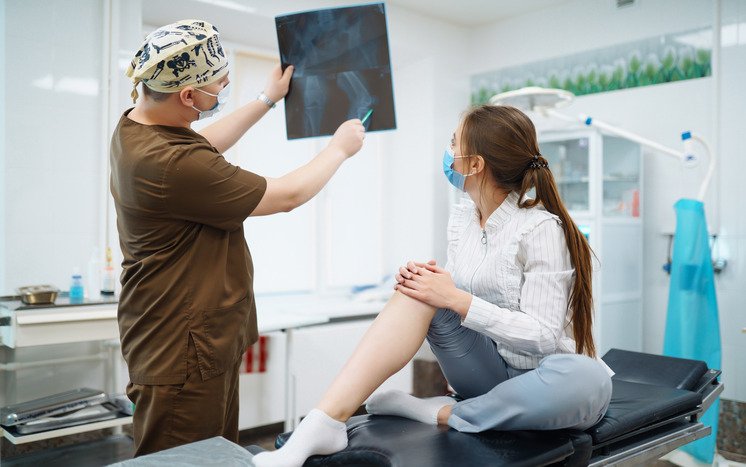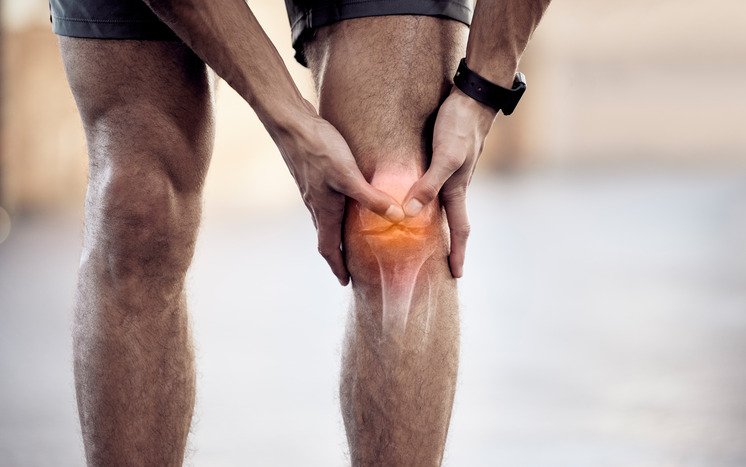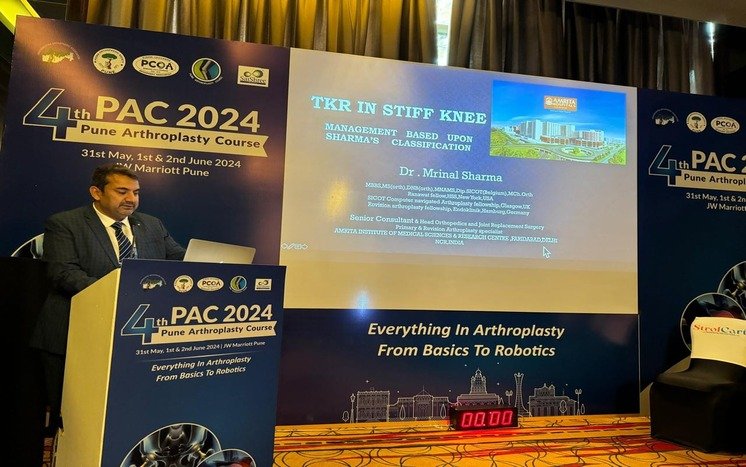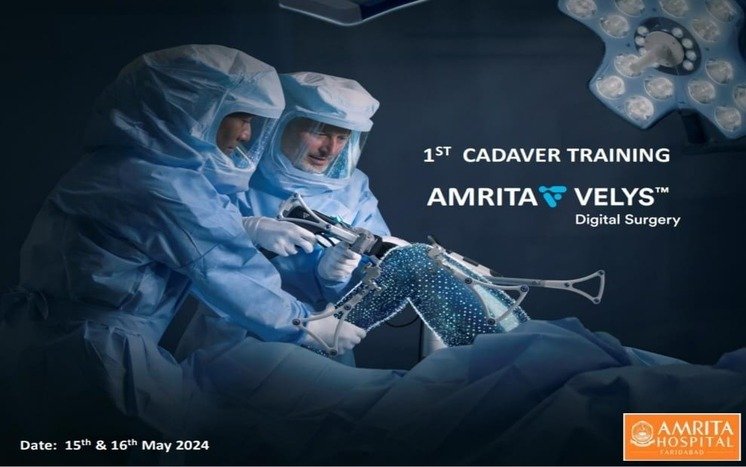
10:00am to 04:00pm (Mon to Sat) - Metro Hospital, Faridabad
06:00pm to 08:00pm (Mon to Sat) - Arthrocare Clinic, Noida
10:00am to 04:00pm (Mon to Sat) - Metro Hospital, Faridabad
06:00pm to 08:00pm (Mon to Sat) - Arthrocare Clinic, Noida
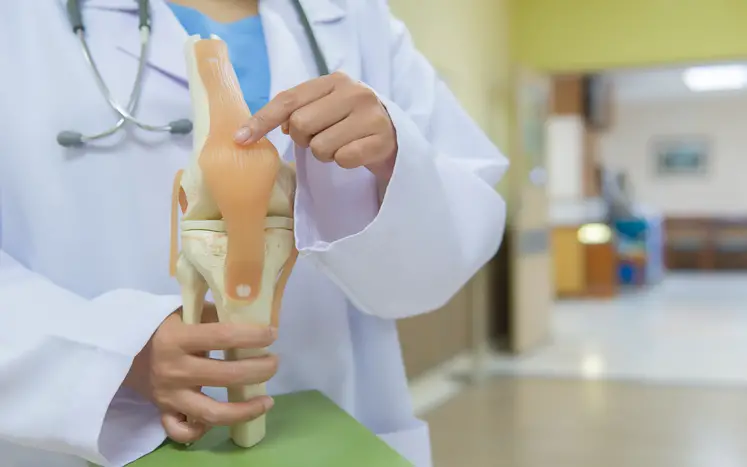 October 26, 2023
October 26, 2023
Orthopedics, often spelled as “orthopedics” in some regions, is a medical specialty that focuses on the diagnosis, treatment, and prevention of conditions related to the musculoskeletal system. The term “orthopedic” comes from the Greek words “orthos,” meaning straight or correct, and “paideia,” meaning education. Essentially, orthopedics is the field of medicine dedicated to correcting and preserving the health of the musculoskeletal system, which includes bones, joints, muscles, tendons, ligaments, and nerves. In this comprehensive guide, we will delve into what orthopedics encompasses, its various types, and the role of orthopedic surgeon in maintaining our mobility and overall well-being.
Before diving into orthopedics, it’s crucial to understand the musculoskeletal system it deals with. This complex system provides the framework, support, and movement for the body. It comprises:
The musculoskeletal system is a highly integrated and complex network, and when any part of it is affected by injury or disease, it can lead to discomfort, pain, and impaired mobility.
Orthopedic medicine is concerned with diagnosing, treating, and preventing disorders and injuries that affect the musculoskeletal system. Orthopedic specialists, commonly known as orthopedic surgeons, are medical doctors who undergo extensive training to become experts in this field.
Orthopedic surgeons employ various diagnostic methods to identify musculoskeletal issues, including:
Orthopedic treatment options range from non-surgical interventions to complex surgical procedures. The choice of treatment depends on the condition’s severity and the patient’s overall health. Common treatment approaches include:
Orthopedic surgeons are not only focused on treatment but also on preventing musculoskeletal conditions. They advise on lifestyle modifications, exercise, and ergonomic practices that can help avoid injuries and maintain musculoskeletal health.
Orthopedic medicine is an extensive field with various subspecialties, as the musculoskeletal system encompasses a wide range of conditions and areas. Here are some of the primary types of orthopedic subspecialties:
Sports medicine orthopedics is all about managing and preventing sports-related injuries. Orthopedic surgeons in this field work with athletes to diagnose and treat conditions like torn ligaments, muscle injuries, and fractures.
Joint replacement orthopedics specialize in replacing damaged joints with artificial ones. Common procedures include hip and knee replacements, which can dramatically improve patients’ mobility and quality of life.
Spine surgeons deal with conditions affecting the spine, such as herniated discs, scoliosis, and spinal deformities. They perform surgeries to correct these issues and relieve pain.
Pediatric orthopedic surgeons work with children and adolescents. They treat conditions like congenital deformities, growth plate injuries, and scoliosis in young patients.
Trauma surgeons often work in emergency situations, such as car accidents or falls, where bones are broken or dislocated. They specialize in repairing these acute injuries.
Hand surgeons treat conditions affecting the hand and wrist, including fractures, carpal tunnel syndrome, and conditions requiring microsurgery.
Foot and ankle surgeons focus on issues with the feet and ankles, such as fractures, bunions, and Achilles tendon injuries.
Each subspecialty requires additional training and expertise, ensuring that patients receive the most relevant and specialized care for their particular condition.
Orthopedic surgeons are at the forefront of diagnosing and treating musculoskeletal conditions. They play a pivotal role in helping patients regain mobility, alleviate pain, and improve their overall quality of life. Here are some key aspects of their role:
Expert Diagnosis: Orthopedic surgeons use their extensive knowledge and diagnostic tools to pinpoint the cause of a patient’s musculoskeletal issues accurately.
Treatment Planning: They create personalized treatment plans tailored to the patient’s specific condition and needs, whether it’s non-surgical options, rehabilitation, or surgery.
Surgical Expertise: When surgery is necessary, orthopedic surgeons are skilled in performing intricate procedures, often using minimally invasive techniques to minimize recovery time.
Rehabilitation: Orthopedic surgeons work closely with physical therapists to develop rehabilitation programs aimed at restoring strength, mobility, and function after surgery.
Preventive Guidance: They provide guidance on lifestyle modifications and exercises to prevent future injuries and maintain musculoskeletal health.
Orthopedics is a medical specialty that revolves around the musculoskeletal system, encompassing bones, joints, muscles, and more. Orthopedic surgeons are highly trained medical professionals who diagnose and treat a wide array of musculoskeletal conditions, from sports injuries to joint replacements and spinal deformities. Their role is crucial in helping individuals maintain mobility and quality of life. Understanding the field of orthopedics is essential for anyone dealing with musculoskeletal issues or considering a career in this medical specialty. It is a field that combines medical expertise, surgical skill, and a commitment to enhancing the well-being of patients.
